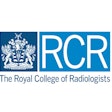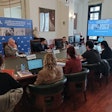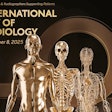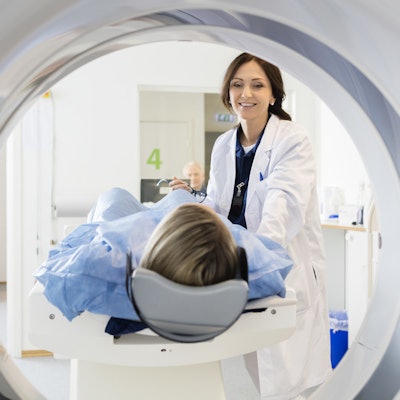
Workforce shortages in clinical radiology are increasing year-on-year, resulting in delayed diagnoses and lower-quality patient care, according to the latest annual census from the U.K. Royal College of Radiologists (RCR). Shortages of interventional and breast radiologists are an area of particular concern.
Costs have escalated as radiology departments struggle to meet the demand for complex imaging, and consultant radiologists are feeling overworked and undervalued, noted the "Clinical Radiology UK Workforce Census 2019 Report," which was released on 14 April.
The key findings from the 61-page report were as follows:
- National Health Service (NHS) hospitals spent 193 million pounds (218 million euros) last year on outsourcing, overtime, and locums to cover radiologist shortages. U.K. outsourcing costs rose 32% in 2019. In Scotland, expenditure on outsourcing shot up by 73%.
- Only 1% of NHS trusts (hospital groups) and health boards are able to report all scans within radiologists' contracted hours.
- 70% of clinical directors of radiology departments feel they do not have enough radiology consultants to deliver safe care. Additionally, 46% of trusts and boards do not have the staff or transfer arrangements required for safe 24/7 interventional radiology services.
- Demand for CT and MRI scans is growing at 9% a year, which is three times the speed of the radiologist workforce.
- In 2020, approximately 200 doctors will qualify as radiology consultants -- not enough to fill even half of the estimated 466 vacancies. Also, in the 12 months to September 2019, 196 consultant clinical radiologists (equivalent to 161 whole-time equivalents) left the workforce, equal to 4% attrition.
- The U.K. radiologist workforce is now 33% short-staffed; without more consultants in training and better staff retention and recruitment, the shortfall will hit 43% by 2024.
Importantly, the document was finalized before the escalation of novel coronavirus management, and it underlines the precarious state of many hospital imaging services and the unprecedented challenge that lies ahead, stated an accompanying RCR press release.
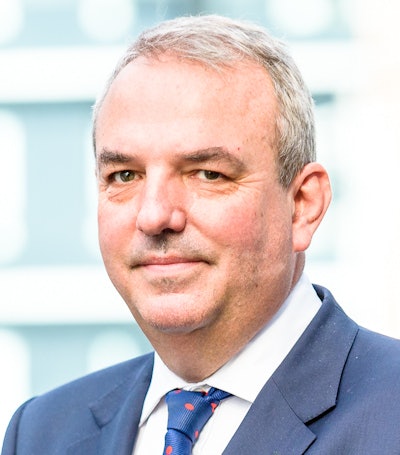 Prof. Mark Callaway.
Prof. Mark Callaway."The global coronavirus pandemic brings a sustained period of uncertainty and demand for the NHS," said Prof. Mark Callaway, lead author of the workforce report and the RCR's medical director of professional practice for clinical radiology. "Our most recent report underlines how our staffing crisis, which has been evident and escalating for the past five years, is having an undeniable, direct impact on the cost and quality of patient care."
He hopes politicians and health leaders will seriously consider how the ongoing shortage of radiologists limits patient care and poses a threat to patient safety and commit to improving trainee numbers and focusing on specialty-specific retention measures.
"Due to our consistent 100% completion rate for the workforce census, these powerful but concerning data can be used by the RCR to lobby government, health education bodies and policy-makers for increased training numbers and improved working practices for clinical radiologists," Callaway added.
Generalists vs. specialists
In 2019, 73% of consultant radiologists were classified as generalists. Variations were seen across the U.K., with generalists being more common in Northern Ireland, Scotland, and Wales (84% to 85% of the consultant workforce) than in England (71% of the consultant workforce).
"The proportion of specialist radiologists in England has increased gradually over the past five years, from 25% of the consultant workforce in 2014 to 29% in 2019. In comparison, there has been no shift from generalists to specialist consultant radiologists in Northern Ireland, Scotland and Wales, where specialist radiologists account for 15% to 16% of the consultant workforce," the report noted.
Most generalists across the U.K. have one main area of specialty interest (57%), a third have two (33%), and a small number (10%) have none. The majority of specialists across the U.K. have one main area of specialty interest (83%), though some (17%) have two or more areas of specialty interest.
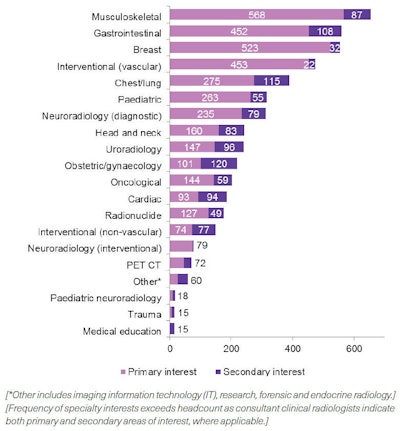 Primary and secondary specialty interests of U.K. consultant clinical radiologists, 2019. Image courtesy of the RCR.
Primary and secondary specialty interests of U.K. consultant clinical radiologists, 2019. Image courtesy of the RCR.The most common specialty areas of practice are musculoskeletal, gastrointestinal, breast, vascular interventional radiology (IR), and chest/lung. Together, these account for 53% of all specialty interests.
Breast radiology has slipped from 13% of all specialty interests in 2014 to 11% in 2019. Similarly, vascular IR has dropped from 12% of all specialty interests in 2014 to 10% in 2019. Shortages of breast radiologists and vascular interventional radiologists are an area of concern, the report stated.
Overseas recruitment
Around 60% of U.K. trusts/health boards attempted overseas recruitment in 2019, compared with 40% in 2015, according to the RCR census. In 2019, 67% of consultant clinical radiologists undertook their medical degree in the U.K., compared with the 2014 figure of 73%. Doctors who graduated from medical school in India accounted for approximately 30% of clinical radiology overseas recruitment in 2019.
The report also highlights several practical obstacles to the recruitment of radiologists from overseas:
- U.K. working practices: "Often the challenge is learning ways of the NHS, rather than the academic aspects of radiology."
- Hospital procedures: "We tried to recruit a doctor from Pakistan, but the recruitment process was not successful due to convoluted HR processes within our trust."
- Financial cost: "Monetary costs for relocation [are high], especially if doctors fail to commit to a significant period of time."
- Skills availability: "[It is] difficult to recruit from overseas, especially for intervention, as skills can be variable."
- Political uncertainty: "[There are] uncertainties due to Brexit and change of policies."
- Visa processes: "[The candidate's] visa [application] got rejected."
- Longer time frames: "Extra time [is] required when employing and supporting non-U.K.-trained radiologists."
- English language requirements: "One candidate failed [the] English exam on multiple occasions."
- Ethical concerns: "We cannot/should not rely on stripping developing countries of their best and brightest staff."
The workforce census report 2019 will be supplemented by individual documents for England, Northern Ireland, Scotland, and Wales. Available in June or July 2020, these reports will provide details of the clinical radiology workforce situation in each country, focusing on the regional variation and workforce forecasts for the next five years.
You can download a copy of the full U.K. report free of charge from the RCR website.












